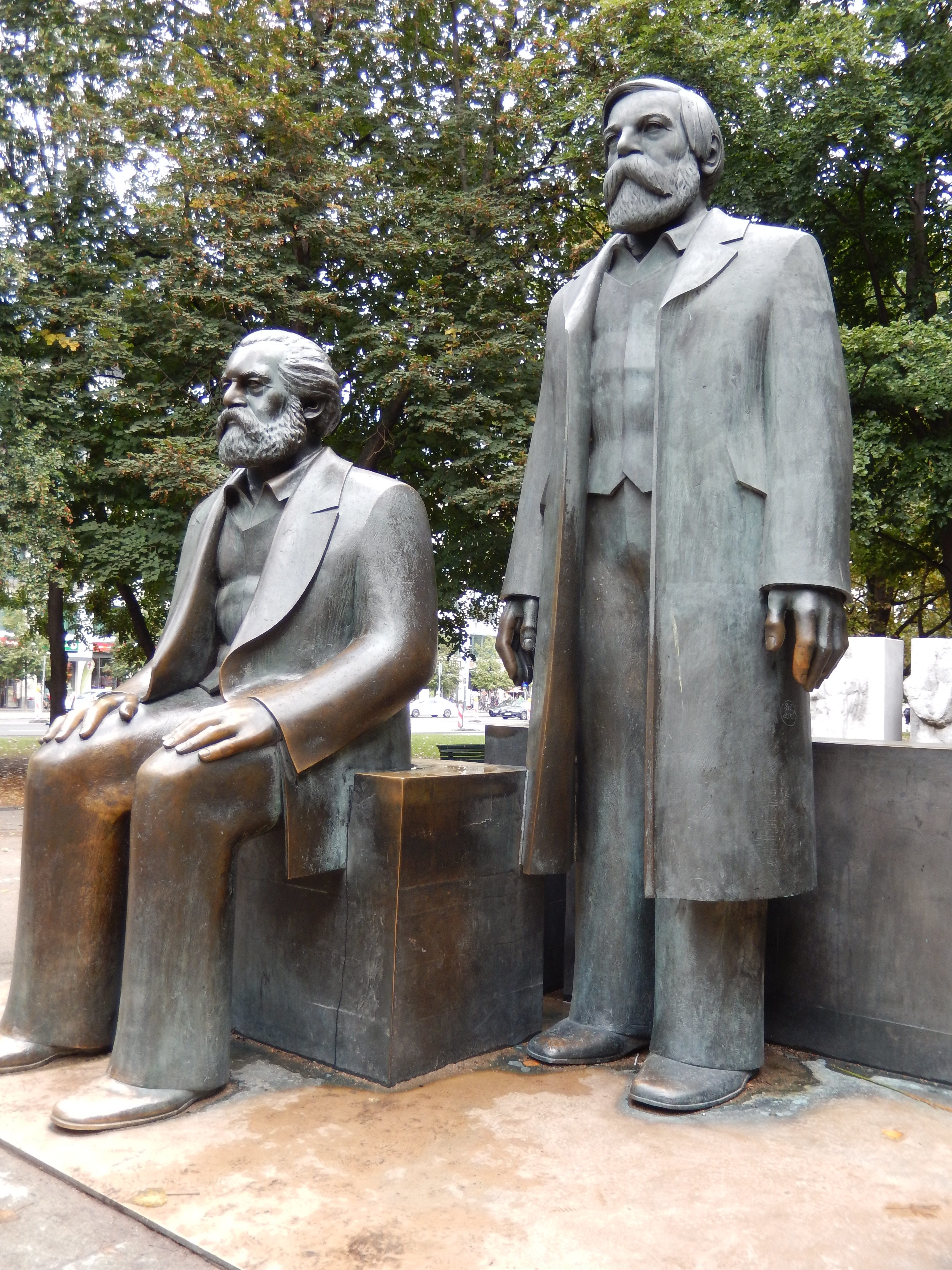Karl and Fred, two old friends in a park in central Berlin, are fixtures that the locals and tourists often pass. These old friends, because they were always pre-occupied with the big issues in life, stare off in the distance. Though they are frozen in time, they silently, between themselves, look back and reflect on what their life has meant and what life now has in store.
“Karl, you never smile.” Said Fred. “You have been sitting here aloof, for I don’t know how long with pretty, young women climbing up on your knee, putting their arms around you; and one earlier today even kissed your cheek… That attention would’ve made me smile; it would have put colour in my cheek and lust in my loins… but you seem to be completely immune.”
“Well I don’t know,” said Karl, “I think you are more aloof than me. People like to hold your hand; they like to grab your finger, like a toddler holding onto a father’s finger when they take their first steps; but all you do is stand there, you don’t walk with them, you completely ignore them.”
“I know what you’re going to say,” Karl continued,” You have bigger, more important things on your mind. You have the class struggle and the plight of the common man to think about; you have to write about the common man and how he should band together and fight for his dignity; meanwhile the common child; these children among them, never enjoy a walk in this fine park, holding on to your finger.”
“Well I could say the same thing about you,” Fred replied, “when did you ever spend time with your children; when did you ever have them on your knee and read them a story… and no, reading our Communist Manifesto doesn’t count.”
“Look,” Karl replied, “don’t make me feel guilty. Yes, I barely knew my children because they always got in the way when I was trying to write. How could I ‘play with them’ when the proletariat was so down trodden; how could I spare the time for frivolities when there was so much that cried out to be said.”
Fred continued to look off into the distance, and in a moment of reflection said, “Your right Karl, we were too self absorbed in the ‘Class Struggle’; to wound up in the big picture to want to share our energies with those in the little picture, those we should have been supporting and loving. And now, when these young people come here to sit on our knee or hold our finger, we are emotionally frozen and can’t respond. Was it all worth it?”
Karl was thoughtful for a minute, then said: “It’s sad, but the only thing alive now are our ideas, and those were so badly exploited and bastardized that we hardly recognize them… but I like to think we made an important contribution to society. We created another vision of utopia; though virtually impossible to implement, it still is something to strive for … we made the right choice.”
Author’s Note:
According to Wikipedia, the “Marx-Engels-Forum is a public park in the central Mitte district of Berlin, the capital of Germany. It is named for Karl Marx and Friedrich Engels, authors of The Communist Manifesto of 1848 and regarded as two of the most influential people in the socialist movement. The park was created by the authorities of the former German Democratic Republic (GDR) in 1986.”
The statues are now a tourist attraction, and a steady stream of people sit on Marx’s knee to have their photos taken.
